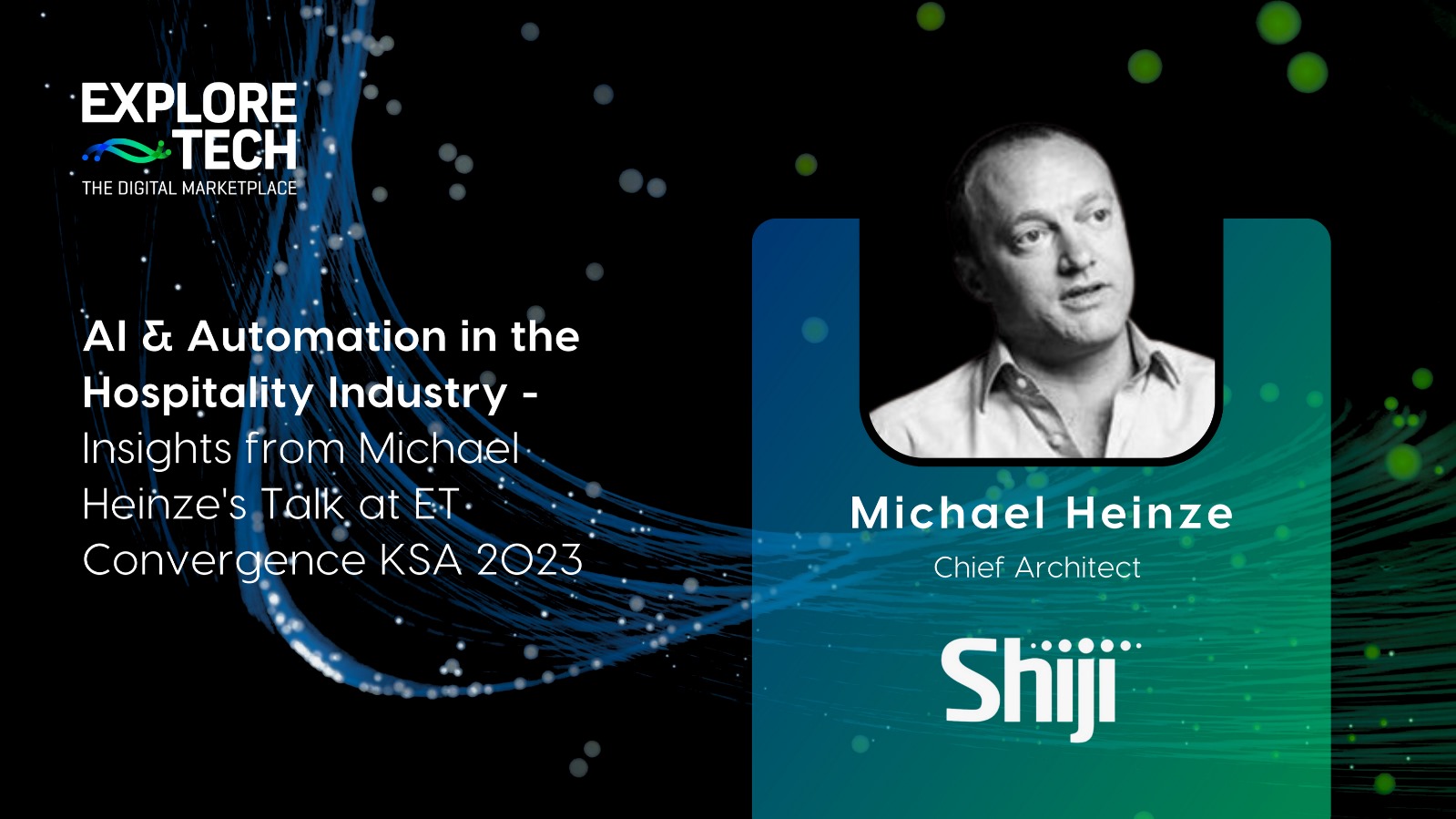

The hospitality industry is undergoing a profound transformation, driven by the growing demand for seamless and convenient guest experiences. In a recent talk at ET Convergence KSA, Shiji’s Chief Architect, Michael Heinze shed light on the challenges faced by both guests and the industry itself.
During his presentation, Michael emphasized the urgent need for automation and artificial intelligence (AI) to bridge the gap between guest expectations and their fulfillment. In this article, we delve deeper into the insights shared by Michael Heinze and explore how technology can revolutionize the world of hospitality.
The Guest Experience Conundrum
Imagine sitting by the pool at a luxurious hotel, ready to place an order for lunch. You pick up your smartphone, scan a QR code on the table, and expect to access the menu effortlessly. But reality proves different. The QR code leads you to a cumbersome PDF menu buried beneath layers of links.
After a frustrating 15 to 20 minutes of navigation, you finally manage to place an order. However, the disappointment doesn't end there. The order gets rejected because you were looking at the dinner menu instead of the lunch menu. The technology intended to enhance the guest experience ended up causing more inconvenience.
This scenario is not uncommon in the hospitality industry. Despite the digital convenience we experience in our daily lives, the industry often lags behind, plagued by disjointed processes and manual interventions. Michael Heinze's personal experience serves as a poignant reminder that the hospitality industry must catch up with the seamless experiences offered by other sectors.
The Role of Automation and AI
Michael Heinze argues that the solution lies in automation and AI. He envisions a future where guests can make requests and receive instant responses through an app, eliminating the need for call center agents, concierges, or intermediaries. AI-driven chatbots can provide information about the hotel, activities, local attractions, and transportation options, making the guest experience more informative and enjoyable.
However, Michael Heinze emphasizes a crucial point: data accuracy is paramount. AI can only excel when fed with accurate, up-to-date information. It's futile to expect AI to handle requests like room availability without an impeccably maintained data infrastructure. Therefore, establishing a solid data foundation is the first step in improving the guest experience.
Automation as a Game-Changer
At its core, automation represents a generational breakthrough for the hospitality industry. It can potentially enhance guest experiences while reducing the workload on staff. The key to success in this endeavor is to view guest experience, staff experience, and IT systems as interconnected components. The ultimate goal is to achieve the desired guest experience while streamlining operations.
Conclusion
In a world where convenience and seamless experiences are becoming the norm, the hospitality industry must adapt to meet the expectations of modern guests. Michael Heinze's insights at ET Convergence KSA highlight the pressing need for automation and AI to transform the industry. By providing guests with effortless and efficient experiences, hotels and resorts can meet and exceed customer expectations.
The path forward involves implementing accurate data systems, embracing AI-driven chatbots, and reimagining guest interactions through innovative technology. As the hospitality industry evolves, the fusion of automation and AI will be at the heart of delivering exceptional guest experiences. It's time for the industry to embrace change and embark on a journey to enhance guest satisfaction while optimizing operations. The future of hospitality is digital, and those who embrace it will undoubtedly thrive in this new era of guest-centric service.







